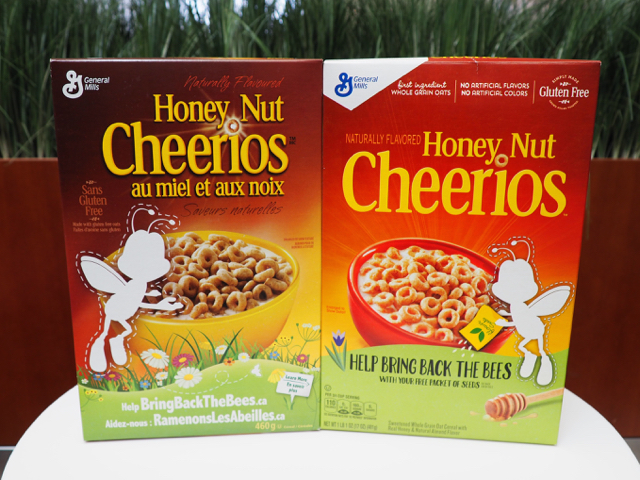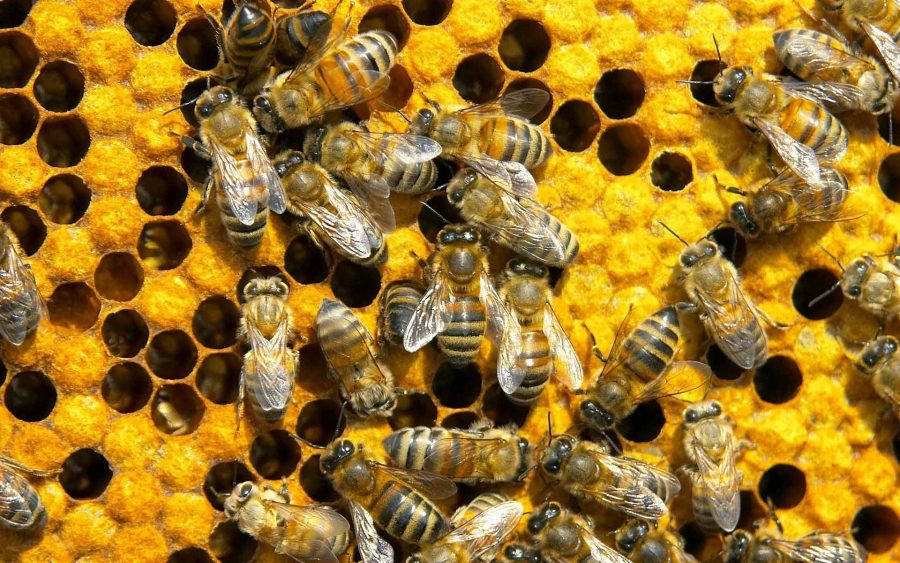Cheerios has given away 1.5 billion wildflower seeds to contribute to increasing the bee population in Canada, they announced recently.
The popular cereal brand is working with Veseys Seeds, a Canadian seeds company, to ask the Canadians to plant the seeds in a “bee-friendly” area, seeking to boost the bee population in the country. Last year, Cheerios launched the #Bringbackthebees campaign, and they distributed seeds to Canadians of all ages. This year they are making the same, but principally focused on children, trying to educate them about the importance of keeping bees safe.

“I am very pleased to lend my voice to this year’s campaign to explain to children how important it is to make a significant difference by planting wildflowers outside their homes. We truly hope that the next generations of Canadians will be aware of the need to care for bees. That will make all the difference,” said Hannah Alper, an environmental activist and young ambassador for the Beat the Bees campaign, according to eCanadaNow.
#Bringbackthebees
For a limited time and to announce this year’s campaign, Buzz the Bee, the Cheerios mascot, was removed from the Honey Nuts Cheerios packs. Also, they put the message #Bringbackthebees on every package.
All Canadians who want to help with this campaign might go to www.ramesonbeats.ca and purchase some seeds free of charge, and then plant them in a bee-friendly area.
Some critics are trying to stop the campaign saying that some of the wildflowers are potentially invasive so that they could be harmful to the ecosystem.
“This year we hope that Canadians will help us plant 100 million new wildflowers across Canada to help bring the bees back,” said Emma Eriksson, Vice President of Marketing for General Mills Canada, according to eCanadaNow.
Cheerios said that the flowers of the campaign are not considered invasive and that they were chosen wisely to obtain the best results.
Also, some people are saying that the General Mills campaign is very ironic, taking into account that the company buys oats from used herbicides that could hurt bee populations, according to the organization Food Democracy Now.
We need to protect the bees
Since 2006, beekeepers in the United Stated have been noticing the progressive reduction of their bee colonies, calling it as “Colony Collapse Disorder.”
According to Beeinformed, since 2015 to 2016, the United States beekeepers lost 44 percent of their bee colonies. Also, the U.S. Department of Agriculture (USDA) said in January that they would provide a $3 million subsidy to all the initiatives working to increase bee population.

The White House launched in 2015 the National Strategy to Promote the Health of Honey Bees and Other Pollinators. This document contains information about how important are bees for human life and some strategies to keep them safe and increase their populations.
Source: eCanadaNow
